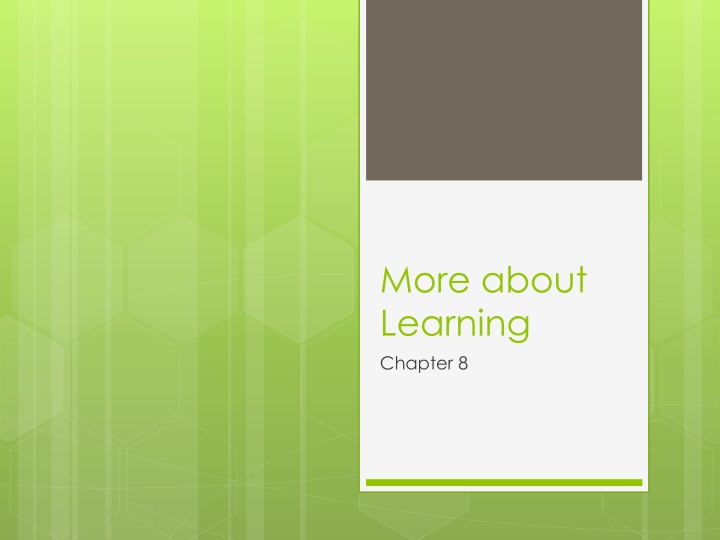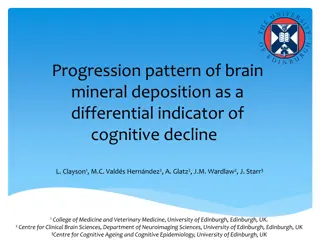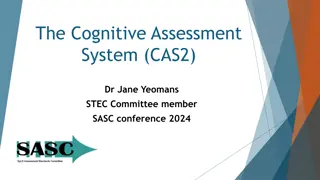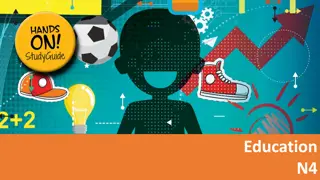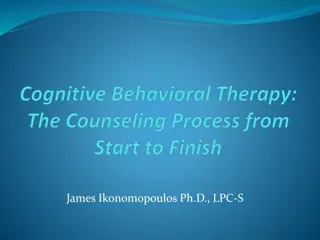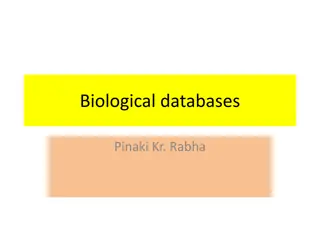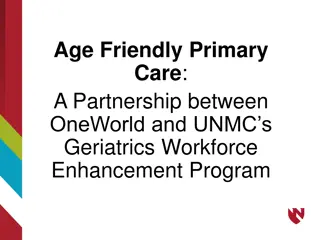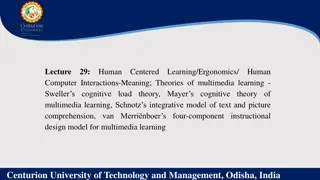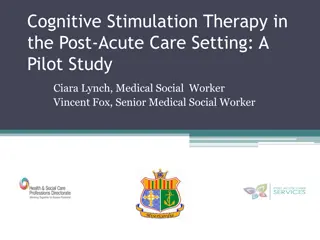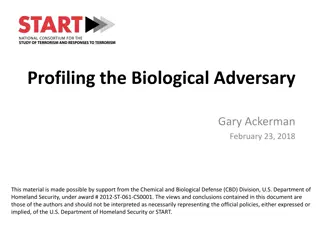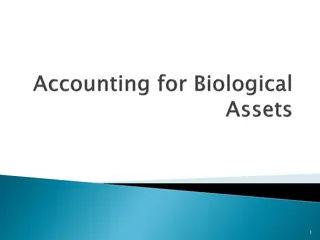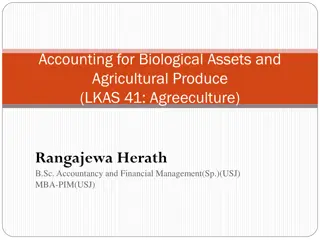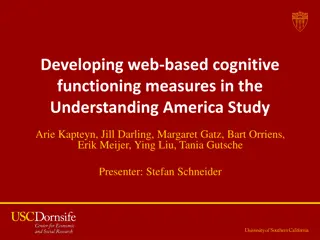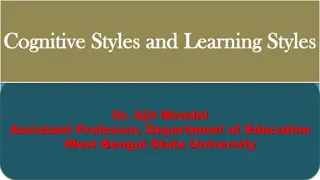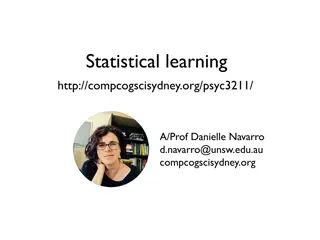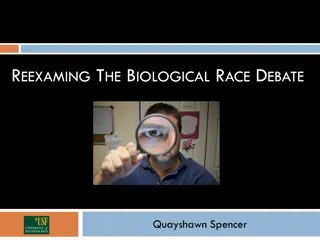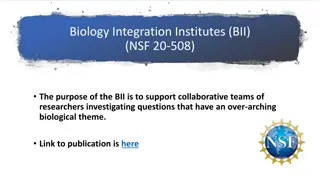Insights into Biological and Cognitive Aspects of Learning
Delve into the intricate aspects of learning, from instinctive drift to cognitive learning, as explored by renowned psychologists such as B.F. Skinner, Gregory Kimble, Martin Seligman, John Garcia, Wolfgang Kohler, and Albert Bandura. Understand the complexities of behaviors and responses shaped by biology, environment, and social interactions, shedding light on the essence of learning and adaptation in both animals and humans.
Download Presentation

Please find below an Image/Link to download the presentation.
The content on the website is provided AS IS for your information and personal use only. It may not be sold, licensed, or shared on other websites without obtaining consent from the author.If you encounter any issues during the download, it is possible that the publisher has removed the file from their server.
You are allowed to download the files provided on this website for personal or commercial use, subject to the condition that they are used lawfully. All files are the property of their respective owners.
The content on the website is provided AS IS for your information and personal use only. It may not be sold, licensed, or shared on other websites without obtaining consent from the author.
E N D
Presentation Transcript
More about Learning Chapter 8
Biological Aspects of Learning Instinctive Drift: tendency of an animal to revert to instinctive behaviors that interfere with a conditioned response. The concept originated with B.F. Skinner's former students Keller Breland and Marian Breland when they tried to teach a raccoon to put tokens into a piggy bank.
Gregory Kimble: Just about any activity that an organism is capable of can be conditioned . He was proven wrong many times. An animal s capacity for conditioning is constrained at times by its biology. Environments are not the whole story. For example: Taste Aversion: Garcia:
Learned Helplessness Martin Seligman The hopelessness and passive resignation an animal or human being learns when unable to avoid repeated aversive events
John Garcia Taste aversion is a learned response to eating spoiled or toxic food. When taste aversion takes place, you avoid eating the foods that made you ill. Taste aversion can be so powerful that sometimes you also avoid the foods that you associate with an illness, even if the food did not cause the illness
Wolfgang Kohler Insight Learning: type of learning or problem solving that happens all-of-a- sudden through understanding the relationships various parts of a problem rather than through trial and error. Sultan the chimp Video clip: Kohler Chimpanzees Video clip: Pigeon, box, and banana
Cognitive Learning Learning by experience, touching, listening, or perceiving Acquisition of problem-solving abilities and with intelligence and conscious thought.
Social Learning Theory Albert Bandura: social learning theory: behavior is learned from the environment through the process of observational learning. Clip: Bobo doll experiment
Social and Emotional Learning Social and emotional learning (SEL) is the process through which children and adults acquire and effectively apply the knowledge, attitudes and skills necessary to understand and manage emotions, set and achieve positive goals, feel and show empathy for others, establish and maintain positive relationships, and make responsible decisions.
Superstitions Learning and Superstitions: see clip on BF Skinner and superstitious behavior
Behavior Modifications Biofeedback: a technique that involves using visual or auditory feedback to gain control over involuntary bodily functions. This may include gaining voluntary control over such things as heart rate, muscle tension, blood flow, pain perception and blood pressure.
Self-Control separates us from our ancient ancestors and the rest of the animal kingdom, thanks to our large prefrontal cortices. Rather than responding to immediate impulses, we can plan, we can evaluate alternative actions, and we can refrain from doing things we'll regret. We can also take advantage of these innately human abilities by developing wisdom and willpower.
Problem Focused Coping Taking Control this response involves changing the relationship between yourself and the source of stress. Examples: escaping from the stress or removing the stress. Information Seeking the most rational action. This involves the individual trying to understand the situation (e.g. using the internet) and putting into place cognitive strategies to avoid it in future. Information seeking is a cognitive response to stress. Evaluating the pros and cons of different options for dealing with the stressor.
Emotion-focused coping involves trying to reduce the negative emotional responses associated with stress such as embarrassment, fear, anxiety, depression, excitement and frustration. This may be the only realistic option when the source of stress is outside the person s control. Drug therapy can be seen as emotion focused coping as it focuses on the arousal caused by stress not the problem.
External locus of control The belief that events in one s life, whether good or bad, are caused by uncontrollable factors such as the environment, other people, or a higher power.
Internal locus of control The belief that events in one s life, whether good or bad, are caused by controllable factors such as one s attitude, preparation, and effort.
